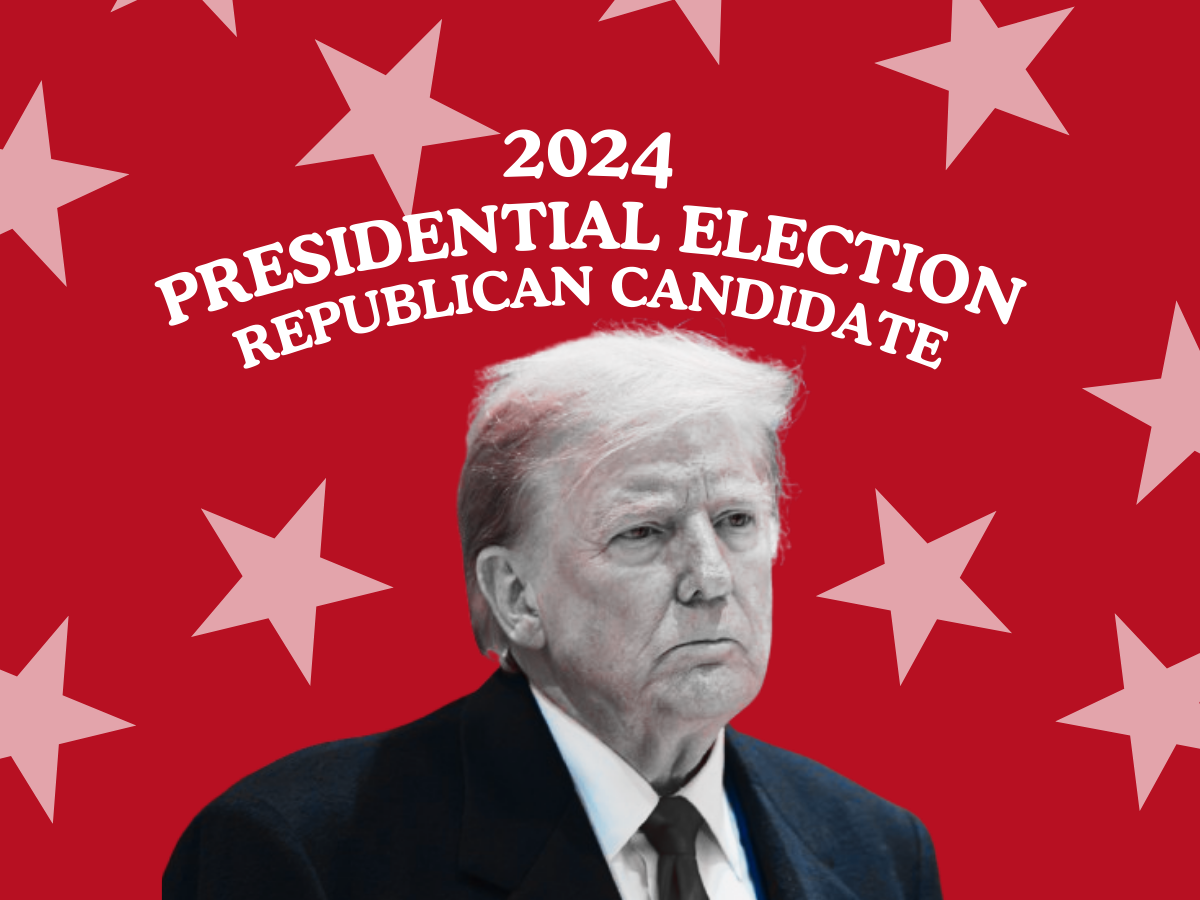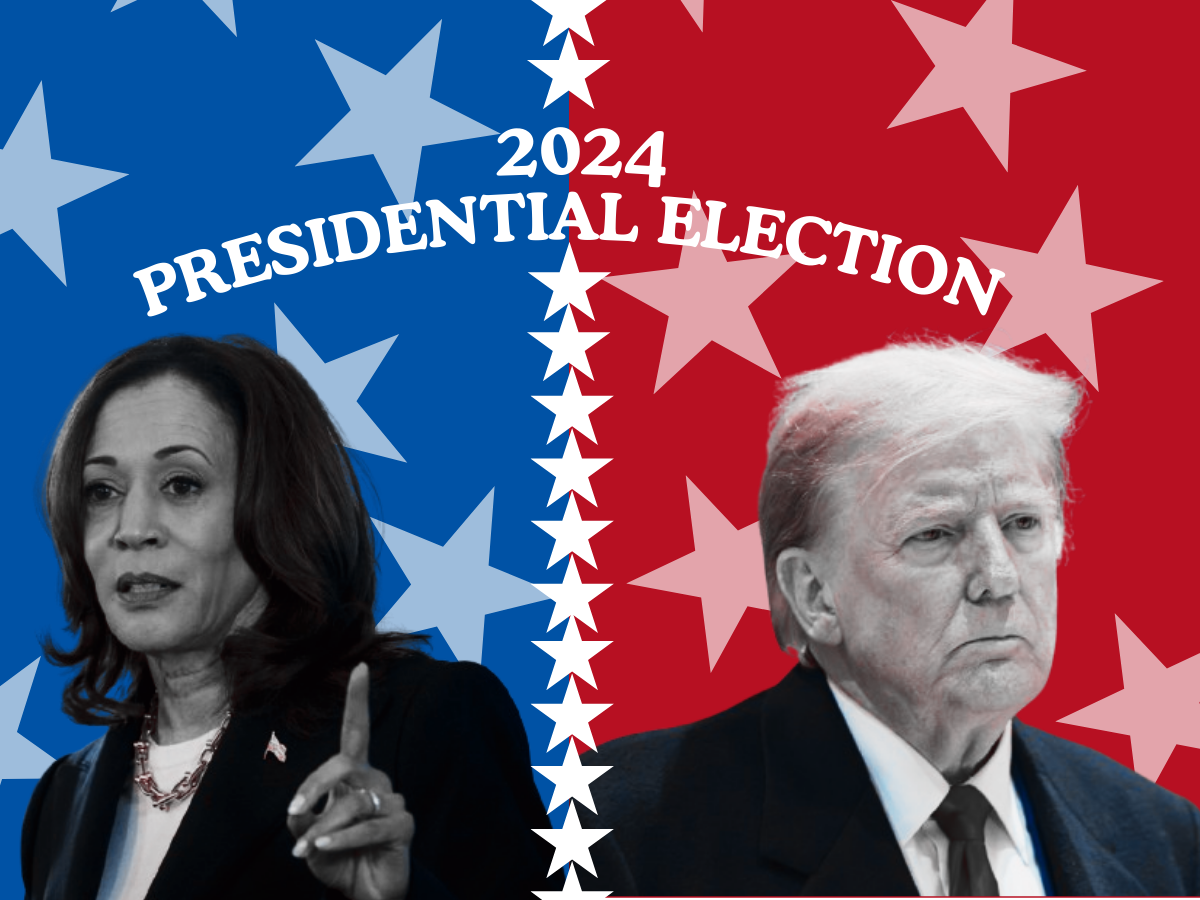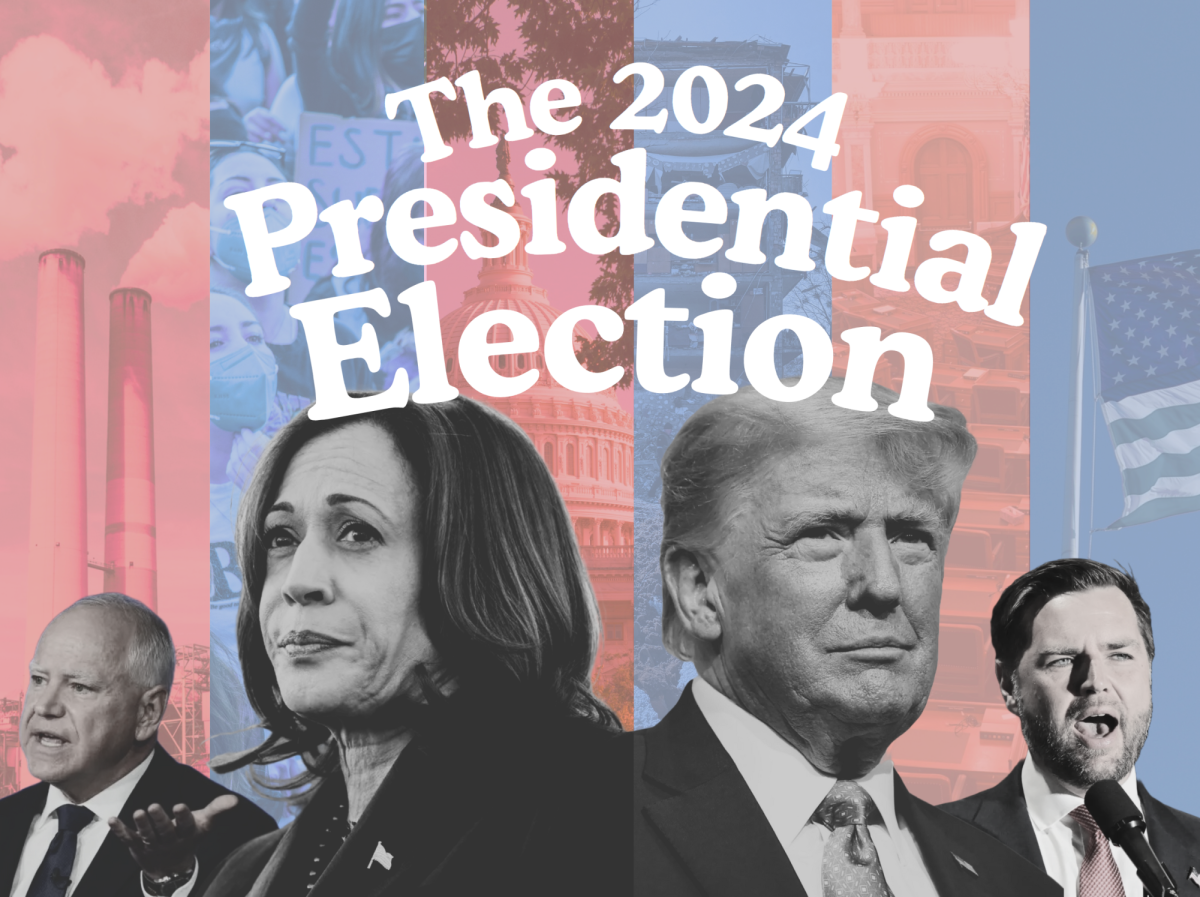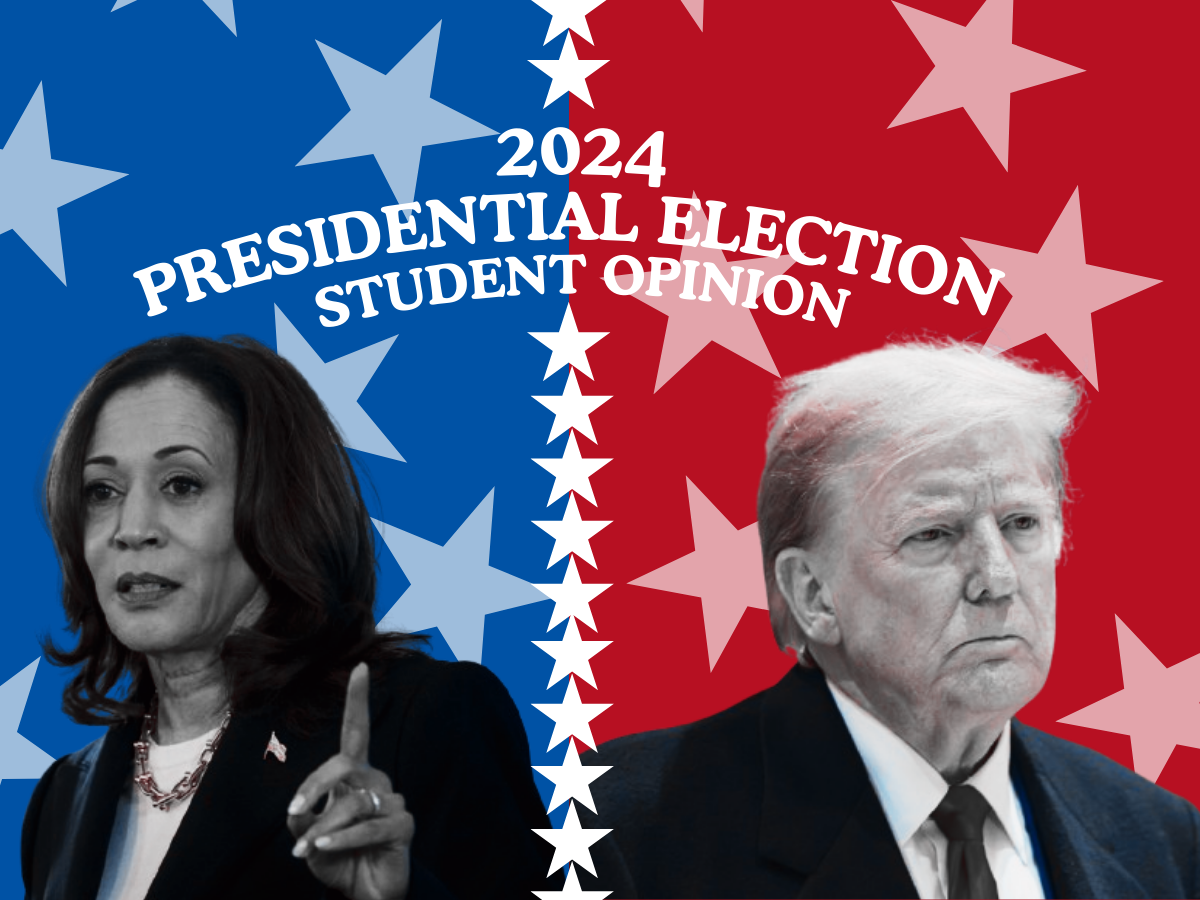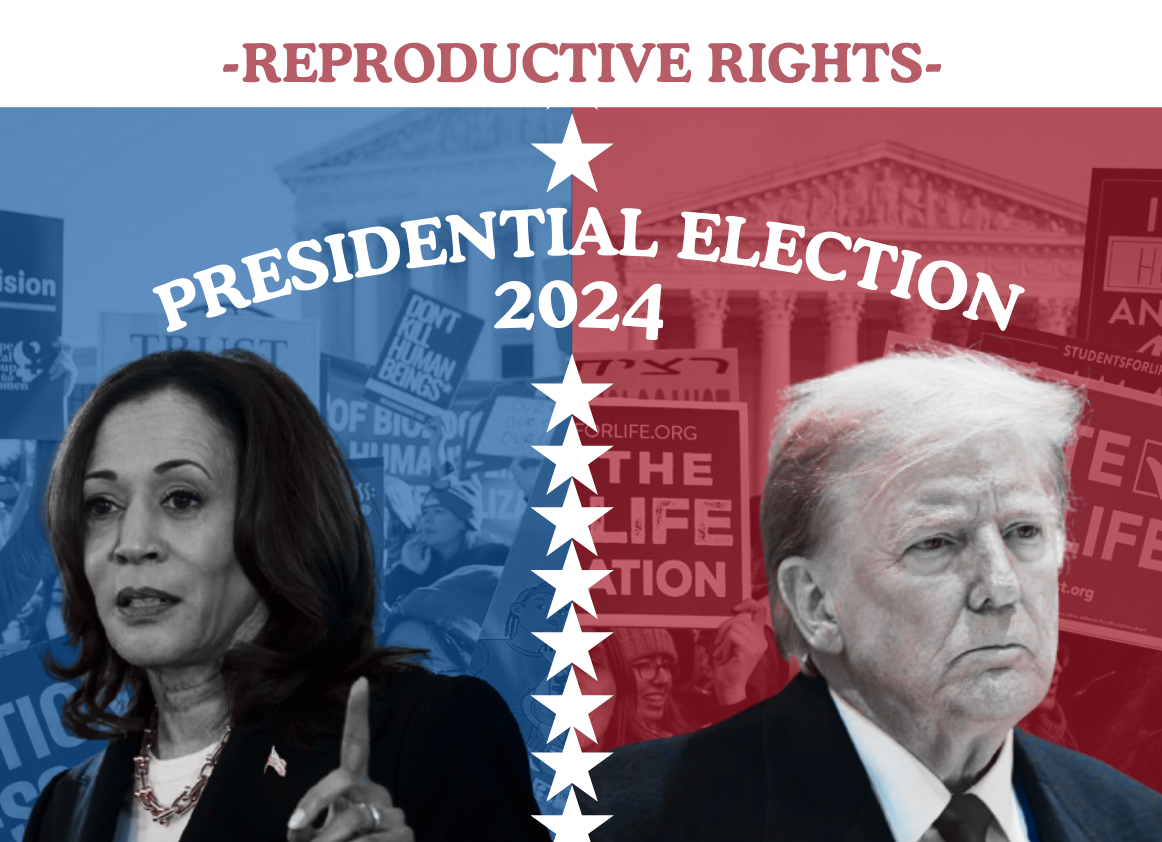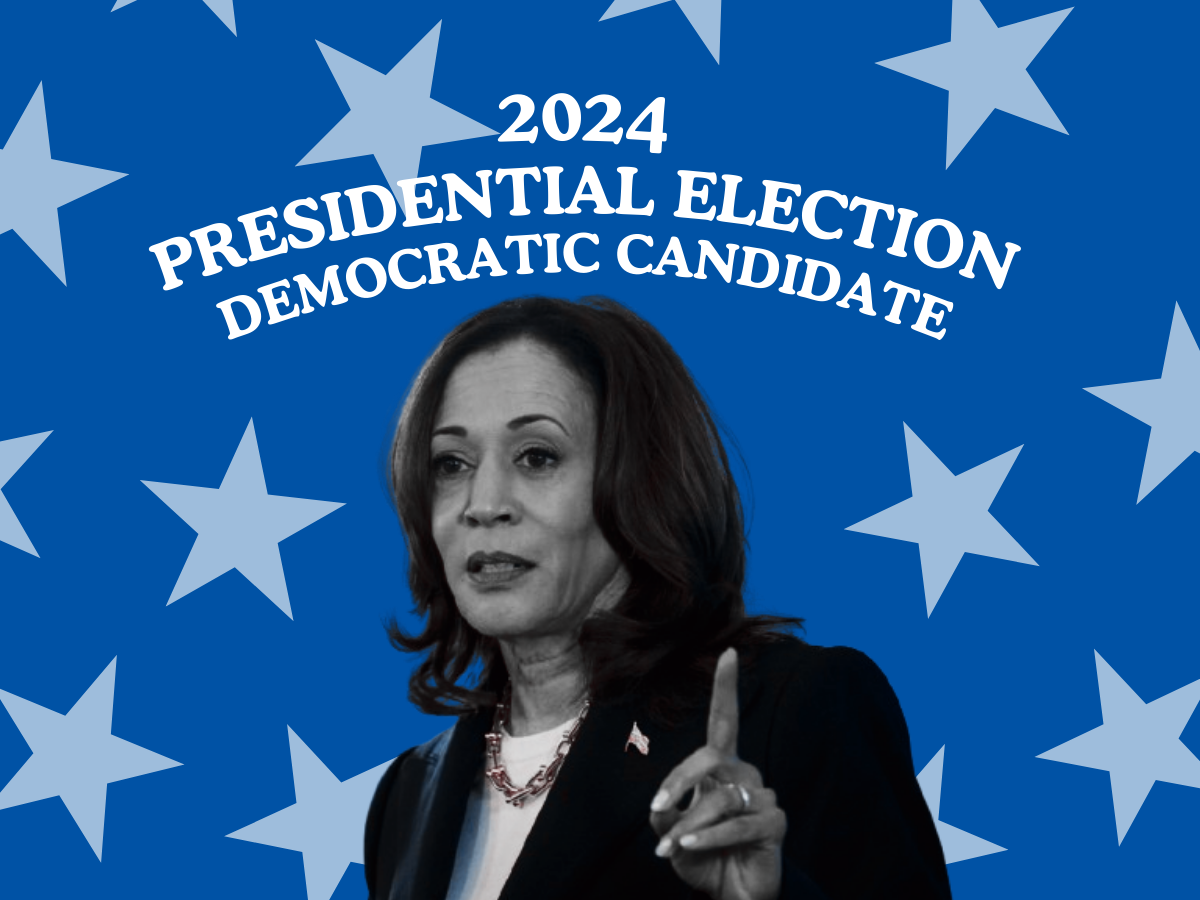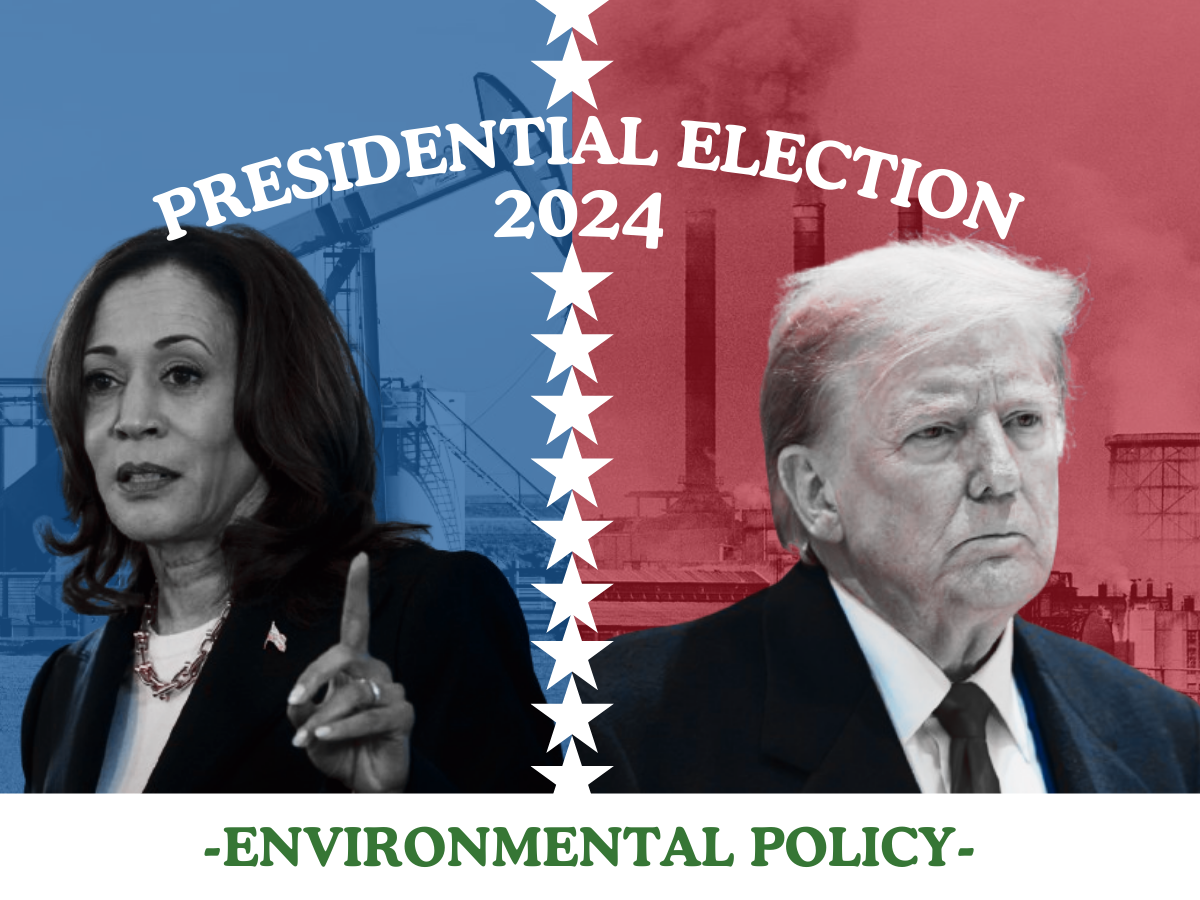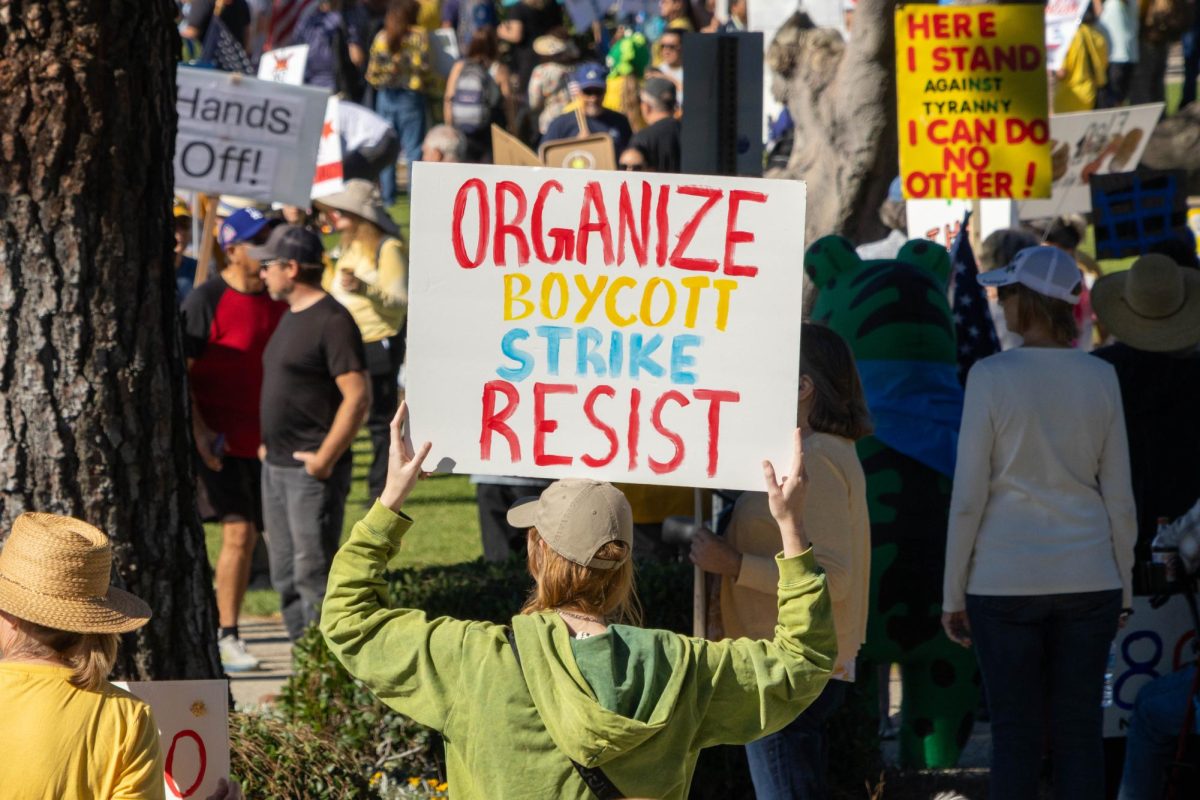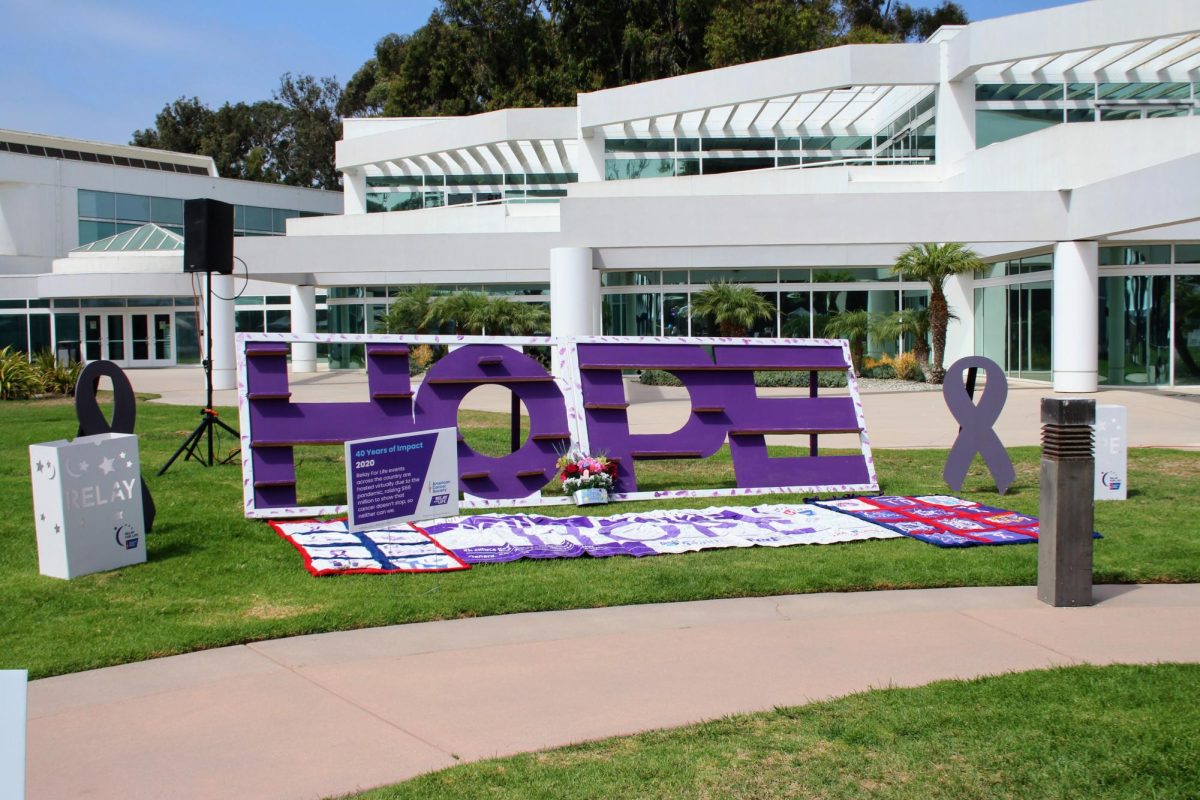This article is a continuation of the 2024 Presidential Election series that delves into all facets of the 2024 Presidential Election, held on Nov. 5, 2024. If you are curious about student opinions at Foothill Technology High School (Foothill Tech), presidential candidates or campaign maps, this series is for you.
The seasons pass, but one prominent figure in recent American politics has not. As the emerald green leaves of summer turn into the burnished foliage of autumn, former President Donald Trump seeks a second term as president of the United States, along with his running mate U.S. Senator J.D. Vance.
Once again, Trump has donned his armor and called for cavalry reinforcements in his third bid for presidency. This round, Trump was initially up against President Joe Biden, before the Democratic Party pivoted to current Vice President Kamala Harris and Tim Walz, governor of Minnesota.
As a former president, Trump has experienced the spotlight before, especially with recent legal events leading up to his presidential candidacy, and all students at Foothill Tech undoubtedly know of him. However, if you are curious about the histories and platforms of your current candidates and potential future leaders, you’ve come to the right place. We’ll start with the Republican presidential candidate, former President Donald Trump.
Trump was born on June 14, 1946, in New York, N.Y. as the fourth child to Frederick Trump, a successful real estate developer, and Mary MacLeod, a Scottish immigrant.
His eldest sister, Maryanne Trump Barry, later entered the political field along with him, and “eventually served as a U.S. district court judge and later as a judge on the U.S. Court of Appeals,” Britannica stated.
On the other hand, Donald Trump’s two brothers, Robert and Fred Trump Jr., joined their father in the real estate business. However, Fred died of alcoholism in 1981, and University of Virginia’s Miller Center of Public Affairs (UVA Miller Center) reported how “Donald Trump cites his brother’s ultimately fatal battle with addiction as the reason he does not drink.” Robert Trump passed away more recently in 2020.
At the age of 13, Trump was sent to attend the New York Military Academy (NYMA), a private boarding school, due to his rowdy personality. A 1983 business feature by the New York Times (NYT) captured a quote by his father, “‘He was a pretty rough fellow when he was small.’”
He went on to Fordham University in the Bronx before transferring to the University of Pennsylvania’s Wharton School of Finance and Commerce (The Wharton School) where he graduated with a bachelor’s degree in economics.
Trump’s career as a businessman began during his college years at Wharton when he invested in Philadelphia real estate. Upon graduating, he began working with his father’s real estate business. However, during the ‘60s and ‘70s, the Trump company was marked by numerous scandals, such as complaints of racial discrimination and being accused of violating the Fair Housing Act.
Throughout the ‘80s, Trump shifted his focus to more luxurious interests in Manhattan. The Trump Organization successfully tackled ambitious projects such as developing the Grand Hyatt Hotel, opening the Trump Tower and expanding the business to other areas as well.
Besides real estate, some noteworthy acquirements include casinos, a football team and signature lines of apparel and furnishings. According to Brittanica, “In the early 21st century, his private conglomerate, the Trump Organization, comprised some 500 companies involved in a wide range of businesses including hotels and resorts, residential properties, merchandise, entertainment and television.”
Although Trump went bankrupt in the U.S. Recession of 1990 and went through severe financial hardship, he recovered soon after. Most memorably, he starred in The Apprentice in the 2000s, a reality television series that helped earn him not only $200 million, but also a reputation as a notable businessman.

Trump had publicly considered running for presidency since the 1980s but only went as far as writing his economic and social ideals in the book “The America We Deserve” and popularizing “birtherism,” the conspiracy theory that former President Barack Obama is not a natural-born U.S. citizen.
When he finally ran in the 2016 presidential election, he won against a veteran politician, Hillary Clinton, the former U.S. Secretary of State. Wielding his campaign slogan of “Make America Great Again” (MAGA), he began his presidency in 2017.
One of the most notable traits of Trump’s campaigning and term of presidency is his use of social media to communicate. According to the White House, “Without previous elected political experience, President Trump used unconventional methods to communicate his priorities. Most notably, he used the social media platform X, formerly known as Twitter, as a primary mechanism for direct communication with the American public, other politicians, and the press corps.”
Over the period of his incumbency, he withdrew the U.S. from the major 2015 Paris Agreement on climate change and rewrote trade policies and agreements. He also “banned travel from seven Muslim-majority countries, issued other tough immigration restrictions, launched a trade war with China, implemented record tax cuts and reshaped Middle Eastern relations,” (BBC).
The alleged collaboration between the 2016 Trump campaign and Russia was also investigated for the first half of Trump’s tenure, resulting in criminal charges against 34 people, not including Trump.
In the latter half of 2019, Trump became the third U.S. president in history to be impeached along with Andrew Johnson and Bill Clinton. “The House of Representatives impeached President Trump based upon allegations of obstruction of Congress and abuse of power. In 2020, the Senate acquitted Trump on both articles of impeachment,” the White House stated.
Trump’s last year of presidency was ruled by the world-wide outbreak of COVID-19. Many critics and health experts accused the Trump administration of having a delayed and half-hearted response to the pandemic.
The Boston Globe shared an interview with Marc Lipsitch, a Harvard professor of epidemiology and director of the Center for Communicable Disease Dynamics (CCDD). “‘This reporting suggests that the decision to avoid a serious response was deliberate … As a citizen, it is hard to know which is worse — that this was done out of ignorance, when there was so much clear information, or that, as this reporting suggests, it was done deliberately.”
On the other hand, the Trump administration did launch the “Operation Warp Speed” program, which was “a federal effort that supported multiple COVID-19 vaccine candidates to speed up development,” stated the United States Government Accountability Office (GAO). Additionally, Trump signed the Coronavirus Aid, Relief and Economic Security (CARES) Act, a $2.2 trillion stimulus bill passed in March 2020, aimed at financially supporting unemployed and struggling Americans.
In 2020, Trump lost in a campaign for reelection to former vice president Joe Biden. That following January in 2021 witnessed the January 6 United States Capitol attack, during which the U.S. Capitol building was surrounded by a mob of Trump supporters who believed that the election had unfairly been won by Biden.
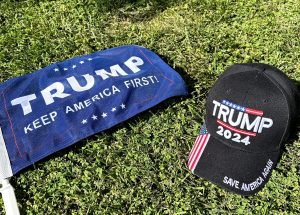
Trump was impeached a second time for his alleged incitement of insurrection but was once again acquitted. Investigations are still ongoing.
More recently, Trump was nominated by the Republican Party as the 2024 Republican presidential candidate, despite his current legal adversities.
On May 30, 2024, Trump was found guilty on all counts in a hush-money case of “falsifying business records in a case stemming from a payment that silenced [adult-film star Stephanie Clifford],” (NYT). Furthermore, Trump was charged for efforts to overturn Biden’s 2020 presidential victory, his removal of classified documents from the White House and sexually abusing the writer E. Jean Carroll.
Although some Republican Party leaders have expressed concern over the fact that these criminal trials may turn some Republican voters away from Trump, others have shown the opposite sentiment. In an interview with Politico, Andra Gillespie, an associate professor of political science at Emory University, stated, “This verdict reinforces the idea that this election is fundamentally about mobilization and turnout. Trump is going to rally his supporters around his assumed martyrdom.”
Accompanying Trump on his endeavors is Senator J.D. Vance, famous for authoring the memoir “Hillbilly Elegy,” which detailed his early life growing up in the Rust-Belt city of Middletown, Ohio.
Vance was born James Donald Bowman in the summer of 1984, although he later changed his name to James David “J.D.” Vance after his parents divorced when he was a child.
In 2003, Vance graduated from Middletown High School. He later enlisted in the U.S. Marine Corps and was deployed to Iraq for four years to serve in the Iraq War. He found further education at Ohio State University (OSU), receiving a bachelor’s degree in political science and philosophy, and later in 2013 earning a law degree from Yale Law School.
Before returning to Ohio to start up a nonprofit organization for disadvantaged children and starting up his own investment firm, he worked for law and investment firms in California.
In 2016, Vance published “Hillbilly Elegy: A Memoir of a Family and Culture in Crisis,” notably describing how poverty was the family tradition for these working-class white Americans. Although he was an avid Trump critic, his book became a hallmark for describing Trump’s voter base. The book also received many criticisms for reinforcing stereotypes and being hurtful.
However, when Vance entered the 2021 U.S. Senate elections, he began aligning himself with Trump. After placing first in the Republican primary and defeating the Democratic candidate, he was sworn in as Ohio senator on January 3, 2023.
On July 15, 2024, he was announced as Trump’s running mate. BBC explained that he was picked partially because he would be able to energize Trump’s base. Vance was young, mainstream and Midwestern, equipping him to rally supporters in crucial swing states in the Midwest.
Currently, with less than a month left before the general election on November 5, 2024, Trump and Vance face off with the Harris-Walz campaign. Even if you may not be an eligible voter this year, it is vital that young citizens of the U.S. continue to be involved and actively participate in politics.
Fight apathy and keep learning!


